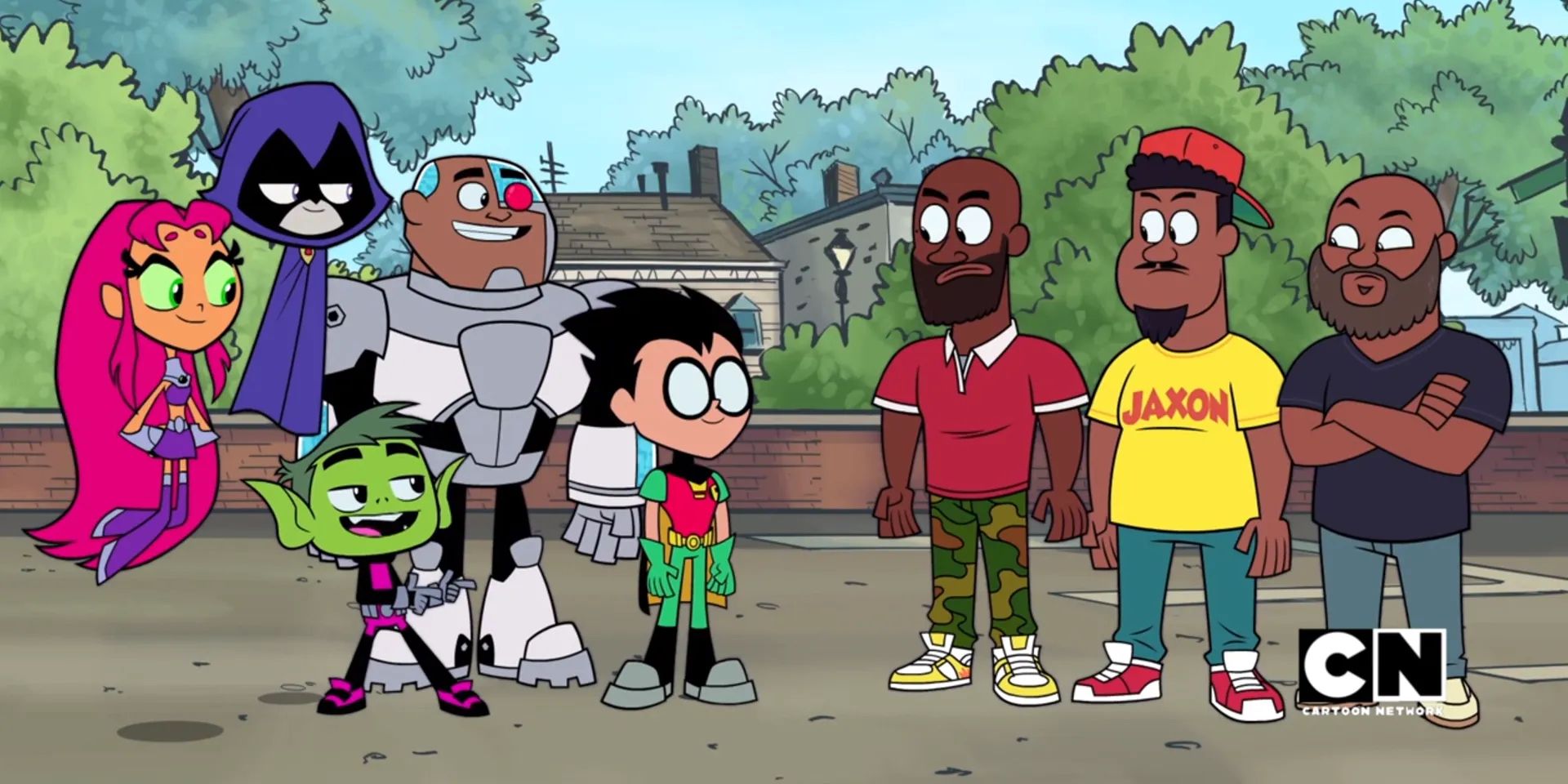Legendary rap group, De La Soul, aired some grievances about their relationship with their former record label on a recent episode of the animated Cartoon Network series, Teen Titans Go! The beloved animated series on Cartoon Network is no stranger to the influence of hip-hop. The show has often incorporated rap music into its plots, either through the characters themselves or through guests that are influential in the hip-hop scene, such as the rapper Lil Yachty.
A recent episode of Teen Titans Go! featured Trugoy, Posdnuos, and Maseo, aka, the members of the highly influential rap group, De La Soul. De La Soul—who rose to prominence in the late 80s and is credited for creating lauded hip-hop classics that incorporated the style of heavy sampling, among other things—has been in a legal battle with their former record label, Tommy Boy, for decades. The disagreement between the rap group and their label—which involves acquiring the rights to the samples used and, now, how those rights hinder the legality of the group’s work being released on streaming platforms—is storied and complex, with decades of back and forth statements, acquisitions and reacquisitions, and even lawsuits.
Slate breaks down the details of De La Soul’s legal frustration with Tommy Boy and how those frustrations were translated in subtle and not-so-subtle references in Saturday’s episode of Teen Titans Go! For starters, the episode is titled, “Don’t Press Play,” most likely alluding to the rappers asking their fans to not play their music during Tommy Boy’s attempts to platform the group’s catalog digitally—a move which the rappers have maintained would not only be inadvisable due to the murky nature of their sampling agreements, but also unfair, since it would cause the group to lose out on royalties. The episode’s entire premise is based on a tentacled alien who steals their music, for which Posdnuos explains, the monster “must be after our sweet music royalties.” The rap group then takes this moment to explain to the Titans (and the audience) the basics of royalties and intellectual property.
There is also a defense for why De La Soul would be using a children’s cartoon to spread this message, which, in addition to noting hip-hop’s lengthy background in the world of comics, cartoons, and animation, points out that De La Soul’s appearance on the show could widen the scope of their fanbase as well as give them an opportunity to make more points regarding their situation in clearer and more explanative terms. Although, the depth of the easter eggs and references makes the episode highly enticing to adults as well, who may be more familiar with De La Soul’s music and complicated journey to make that music accessible to fans.
While fans of both De La Soul and Teen Titans Go! were treated with this episode, the future of De La Soul’s legal mess is, ultimately, a sad one. In this current age of streaming, remastering, and re-releasing, many music legends get to have their day, with big celebrations and re-releases on historic anniversaries of their most beloved bodies of work. Unfortunately, for one of the most critically acclaimed and well-respected groups in the genre, this has not been possible. But hopefully, with a greater reach to various fan-bases like the one Teen Titans Go! provides, the matter can be settled soon.
Source: Slate

